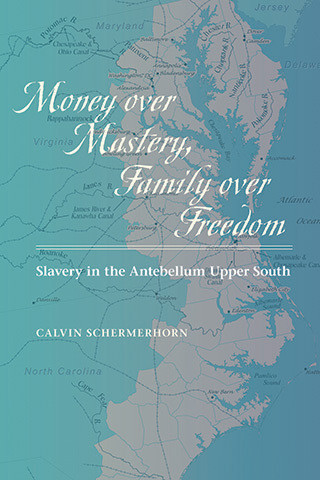
Reviews
Ariel Ron's engagingly written Grassroots Leviathan is an agricultural, political, economic, and intellectual history that is also informed by soil science, chemistry, education, and legal studies.
In recovering the stakes of antebellum agricultural society, Grassroots Leviathan upends conventional wisdom about urban-rural divides in U.S. society and revives a remarkable political economic formation in which popular, democratic developmentalism successfully won out over reactionary, vested interests.
A stunningly original, stimulating, and important analysis of the antebellum agricultural reform movement as it played a major role in rural culture, sectional antagonism, and the development of the nineteenth-century state. Meticulously researched, well written, and historiographically grounded, Grassroots Leviathan offers a critical corrective to the scholarly focus on urbanization and industrialization as the key phenomena marking the drift into modernity. A bold and significant work of scholarship.
Grassroots Leviathan is a remarkable piece of scholarship. Offering an original take on the origins of the Civil War, one that focuses on the emergence of an agricultural reform movement and its political ramifications, Ron grounds his account in a sophisticated understanding of the political economy of northern farming practices. Ron juggles half a dozen different balls here, and it is a tribute to his analytical acumen and expository skills that readers are able to follow his performance without missing a beat. This is, among other things, a thoroughly enjoyable read. An important book.
This is an important book—the best one I've ever read on agricultural reform. It's also the best book I've seen on the relationship of farmers to national politics and state formation in the nineteenth century, and a refreshing intervention in the suddenly lively literature on state formation in the mid-nineteenth-century United States.
Grassroots Leviathan will be the leading history of the antebellum American state for many years to come. Carefully researched and eloquently written, this book is a remarkable achievement that cements Ron's status as one of the leading political historians of his generation.
Ariel Ron brings fresh and much-needed attention to the agricultural north, illuminating the essential role agricultural improvement played in nineteenth-century America. Deeply researched and well-argued, Grassroots Leviathan is rich with insight for both economists and historians.
Who could have thought there was so much new to say about the sectional crisis and the Civil War? By viewing the period through the eyes of northern farmers, Ariel Ron provides a fresh perspective on both the origins of the conflict and the policies pursued once the Republicans were in power.
Ariel Ron unearths one of mid-nineteenth-century America's most important and least understood social movements—and along the way, almost as a happy accident of the harvest, develops a powerful materialist interpretation of the origins of the Civil War. Rooted in deep scholarship and rich with creative insight, this is an uncommonly illuminating book.
Book Details
Front matter
Introduction
In Media Res
Part I: Rise of the Agricultural Reform Movement
1. The Limits of Patrician Agricultural Reform
2. Agricultural Reform as a State-Building Social Movement
Part II: The
Front matter
Introduction
In Media Res
Part I: Rise of the Agricultural Reform Movement
1. The Limits of Patrician Agricultural Reform
2. Agricultural Reform as a State-Building Social Movement
Part II: The Making of Northern Economic Nationalism
3. Economic Nationalism in the Greater Rural Northeast
4. Henry C. Carey and the Republican Developmental Synthesis
Part III: Toward a National Agricultural Policy Agenda
5. Mapes's Superphosphates and the Crisis of Agricultural Expertise
6. From "Private Enterprise" to "Governmental Action"
Part IV: Agricultural Reform Vs. the Slaveocracy
7. Movement into Lobby
8. The Sectionalization of National Agricultural Policy
Epilogue





